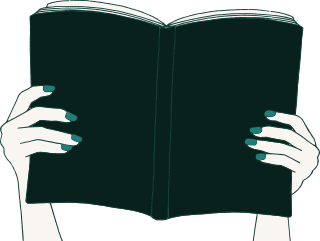- Michelle Anya Anjirbag
In September 2021 I joined the CAFYR research project at the University of Antwerp as a postdoctoral research fellow on a six-month basis. I took on the appointment with the trepidation that comes with stepping out of many comfort zones at once – geographic, linguistic, and research comfort zones among others. But about a year after my time on the project ended, I keep seeing both the self-growth and development as a researcher that was sparked by this opportunity.
When finishing the PhD there is so much emphasis on what you are an expert in. Starting the postdoctoral fellowship was the complete opposite mindset. Though I had done some work on intergenerational discourses, I was very much new to age studies and had a lot of catching up to do to feel like I could really contribute to the work already being done by the team. I can’t understate the importance of discomfort in development, the importance of learning to say “I don’t know” or “I need to learn…” without fear. I might have had a doctorate in hand, but I was back to being the student. But being in that situation just reinforced the thought that as academics, we don’t know, we pursue knowledge. We might teach, but we are constantly learning. I think if I ever hit a point where I feel like I know everything, I will have ceased to do the job of a researcher well.
In my experience it is rare to find spaces where concepts of community and collaboration lead the day-to-day operations in a work environment. What this meant in practice was that not only did I have plenty of support from my colleagues while catching up with the field, but there were also opportunities to work together and mutually support each other. There were structured moments such as team-teaching and reading groups, but also just the ability to think slowly, to talk through problems or test new ideas in a low-risk environment. I credit this environment with how I was able to not only acclimate to somewhere new, but really thrive and present and publish research both independently and in collaboration with colleagues on the team. Age studies might not remain the central focus of what I do going forward, but to have a welcoming research community that has remained open to me even though my time with it has officially ended has made all the difference as I sit in a place of professional transition, and think of where I want to be next or what kinds of environments I want to one day build.
I’ve been very lucky, to be sure, not only in being offered this opportunity but in being able to embrace it and take up further opportunities that arose from the postdoctoral fellowship, such as participating in the Children’s Literature Summer School and being invited to give talks in other countries. But the research I did also became deeply personal, an invitation to think autobiographically, to consider the relationships in my life, the cross-generational friendships I’ve forged, and to really meditate on what it means to be of any age or life stage in the context of one’s own circumstances. I think more deeply now about how age ideologies can affect or inflect choices, how it might shape my perceptions of what I should be doing next or what I should have already done. “Age” is everywhere, yet we’ve somehow been socialized both into ignoring it and being absolutely obsessed with it. But being able to see it, see the implicit discourses around it, is liberating. For all being on the CAFYR team has done for my professional life, and for adding to my CV (which is a fair amount), I know that what it has done for me as a person and how it has opened my eyes will always be so much more important to me as I look back on this experience.
Written by: Michelle Anya Anjirbag
Find me on my personal website.
